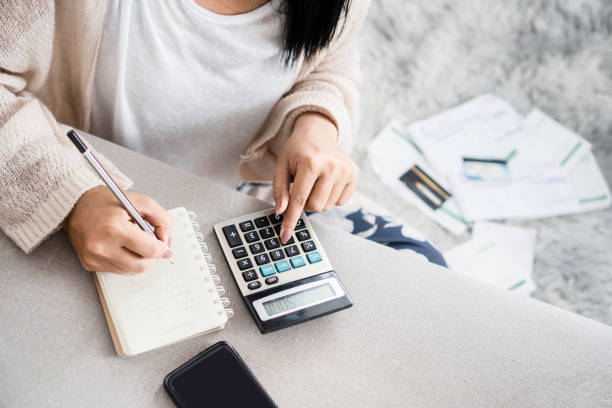The more time that you commit to a habit, the more likely you are to stick to it. So, when it comes to financial habits, you should try to start them when you’re young. If you can commit to these habits in your 20s, you’ll find them a complete breeze to follow in your 30s, 40s and 50s. They’ll become second nature to you.
Follow a Personal Budget
Are you following a budget? No? Then, this is the first financial habit that you need to adopt. A personal budget is an extremely simple and useful tool that can help you manage your expenses, collect savings and pay down debts. It can also keep you from making financial missteps, like putting your checking account into overdraft or bouncing a check. Essentially, a budget will help you stay on track with all of your money matters.
How Can You Start Following a Personal Budget?
That’s easy. All you have to do is download one of the best budgeting apps on your smartphone or desktop and then follow the instructions. You’ll be able to build your budget there. Then, do your best to stick to the guidelines that you set for yourself.
Saving Up for Retirement
The earlier that you save up for your retirement, the better. You’ll be giving yourself plenty of time to build up a comfortable nest egg to rely on in your golden years. You don’t want to set this goal aside until you’re older, like in your 40s or 50s. This will leave you with a much shorter timespan for your retirement savings to grow. You might not have enough to fall back on when you finally decide to leave the workforce for good.
How Can You Start Saving Up for Retirement?
Start by opening the right account. If you’re lucky enough to have a workplace that offers 401(k) plans, jump on this opportunity as soon as you can. 401(k) plans are tax-advantaged retirement savings accounts that you can only access through an employer. One of the biggest perks of a 401(k) plan is contribution matching — this will automatically give your savings a boost, without any effort on your part.
What If You Can’t Get a 401(k)?
Don’t worry. You’re not out of luck. You can still open up an individual retirement account (IRA). An IRA is a tax-advantaged retirement savings account that isn’t tied to your employment. When you open your account, you can choose a variety of investments like stocks, bonds and exchange-traded funds to help your balance grow over time.
After opening your account, get in the habit of making consistent contributions. Check your budget to see how much you can afford to transfer into your account on a regular basis. Add “retirement savings” as a budgeting category. And, whatever you do, refrain from making any withdrawals from these retirement accounts at this point of your life — even if you have to deal with an emergency expense.
Preparing for Emergencies
Right now, an emergency expense could turn your financial routine upside down. You could use funds sitting in your checking account to cover the expense, but that would immediately impact your ability to cover other essentials during the month. You would drain your balance far too early, meaning you’d have to scrimp and save until your next payday arrived. You wouldn’t be able to pay some of your bills on time. And you would potentially put your account into overdraft and deal with a series of fees for your mistake.
You can avoid all of that trouble and then some by building yourself an emergency fund. An emergency fund is a collection of savings that you can use to cover urgent and unplanned expenses without disrupting your budget. You can withdraw the necessary savings to pay off the emergency and still be able to pay your bills as usual. Your financial routine will stay intact.
How Can You Start Building an Emergency Fund?
First, open up a savings account. Ideally, you will want to open up a high-yield savings account because it can accumulate more interest than a standard savings account. Then, you will need to assess your budget to see how much you can put toward this emergency fund every single month. Include “emergency savings” as a category in the budget. Automate the transfers between your checking account to your savings account every single month so that you never miss a contribution. Over time, you should have a sturdy safety net to depend on.
What If You Don’t Have Enough Savings?
If you don’t have enough savings to cover an emergency expense, you still should avoid using the funds in your checking account to pay it off—especially when you know that it will disrupt your financial routine. You should consider using a different payment method, like a credit card or a personal loan. You can go to the website CreditFresh to see whether you are fully eligible to submit a request for a personal loan through it. If you are eligible, you can submit your loan application quickly. The process is straightforward and can take you less than 15 minutes to finish.
With an approved personal loan, you can handle your emergency expense in a short amount of time. Then, you can follow a simple repayment plan through a monthly billing cycle. This could be a better solution than relying on the funds in your checking account.
Your finances don’t have to be a complete mess in your twenties. Just follow these habits! You’ll find that managing your money is a lot easier after you commit to them.
Published by Holr Magazine.



